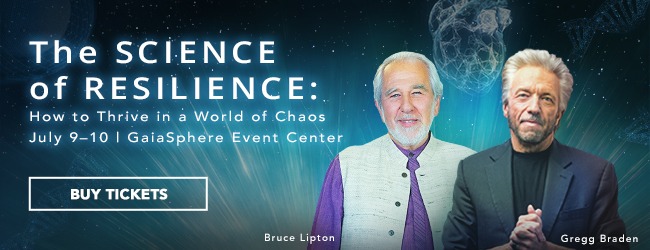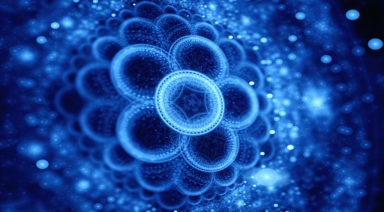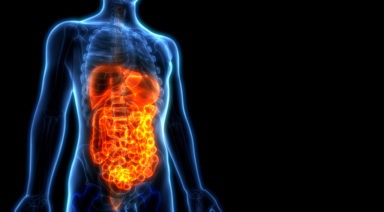Scientists Finally Finished Mapping the Human Genome

Scientists announce they have finally completed the map of the entire human genome. Will the information contained within unlock our true potential for health and wellbeing, or is there another more expansive perspective on the role genes play in our lives?
After decades of research, scientists have recently announced the completion of the human genome, what some call “the genetic instruction book.” Widely used for guiding biomedical research, many experts herald this as a crowning achievement in the field.
Dr. Bruce Lipton is a cellular biologist and a pioneer in the field of epigenetics, which takes a comprehensive, cutting-edge approach to the understanding of our relationship to our genes.
“Most people are really excited about the fact that the human genome has been deciphered; they’ve identified how many genes are in the human genome,” Lipton said. “The original reason for the human genome was, it was thought the genes control all the characteristics of our life and therefore if I had a compendium of all the genes I could fix anybody who has a characteristic they want to change. Francis Crick, one of the cofounders of the story, came up with something called “the central dogma,” the belief that genes are the source of biological information.
“They’re translated into another form of nucleic acid called RNA. So, DNA goes into RNA which is like a xeroxed copy of the DNA, and then the RNA is used as a template to make the proteins of the body,” he said. “According to the central dogma, information only flows in one way — it flows from the DNA to the RNA to the protein. This led to an understanding called ‘genetic determinism.’ Genetic determinism is the belief that the genetic blueprint of your life is carried by the DNA that you inherited at the moment of conception.”
This “genetic determinism” was the prevailing theory of genetics for many decades. Lipton was one of the first to challenge it, beginning some 40 years ago.
“The central dogma was never proven scientifically. The central dogma was a suggestion and a hypothesis,” Lipton said. “Now, there’s a new science that really undermines that whole story of the central dogma, and the story is called ‘epigenetics.’ Cancer is under genetic control, so genes control cancer. The new science is that cancer is under epigenetic control. Well, ‘epi’ means above, and I say, epigenetic means above the gene control. Genes do not turn on and off; genes are blueprints. Genes can be read or not read, but the genes don’t determine which one is going to happen.”
According to epigenetics, what does determine what will happen?
“The environment, and more importantly, this is important, our perception of the environment — it’s the information that controls our genes. Change your environment and you change your genetic activity. Change your belief about life and you can change your genetic activity. Now, there’s something even more important and that is this: the old story is that a gene is a blueprint that makes a protein, fact. The human genome project has been whittled down to that humans have about 20,000 genes; there are over 100,000 different proteins and only 20,000 genes! Where’d all the other proteins come from?” Lipton asked.
“It turns out, how we respond to the environment —our perceptions of the world — can alter our genetic blueprint, so that a single gene blueprint can be used to create over 3,000 different proteins from the same blueprint.”
For Lipton the implications of this understanding are profound.
“Under genetic determinism, we are the victim, the gene creates your life. Then all of a sudden we go from victim to mastery, but you have to do it with knowledge. If you have no knowledge of epigenetics but are programmed with the belief that you are a victim of your heredity, then your belief about your family’s heredity becomes your life. Because if you understand you are the creator, then guess what? For the first time, if you understand the nature within, you have the power to change the creation.”
So how do we go about getting beyond programmed thinking and become masters of our genes?
To find out be sure to watch Part 2 of this Gaia News special investigation.
Herbs And Supplements That Can Heal Or Awaken Your Thyroid

One of the key drivers and actors behind your emotions and emotional intelligence is your thyroid. Resting below your Adam’s apple, and along the front and sides of your windpipe, the thyroid has two squishy compartments connected by a similarly textured bridge. Shaped like a butterfly, this gentle and vital friend appears to elevate your breath and give flight to your voice.
The thyroid might hold the key to the evolution of your relationships, consciousness, and sense of Self. Even if your thyroid appears to be on her last breath, she is waiting to be healed. While this might take some time, effort, patience, and inward reflection, it’ll be worth it. Your thyroid processes experiences and information akin to your heart. When you love, your thyroid loves. When you breathe, so does this lovely and powerful little organ.
Your thyroid is hyper-aware and connected to the other realms, unlike any of your other glands and organs. It might also be providing you with helpful information on how to live, love, heal and thrive.





































